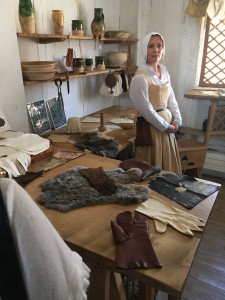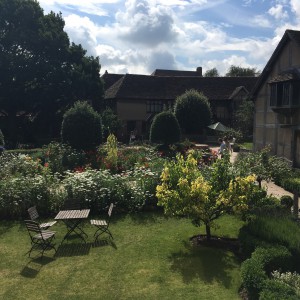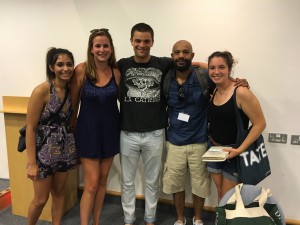William Shakespeare has no doubt enveloped this entire trip, and rightfully so because it is a Shakespeare class. The trip to Stratford-Upon-Avon did not fall short in terms of history and appreciation of the brilliant playwright, but certain interpretations of his plays did. After seeing a fabulous adaptation of Macbeth at Shakespeare’s Globe, my expectations were perhaps a little high. That play did a fantastic job in terms of fitting modernity into a medieval setting. The Royal Shakespeare Company’s performance of Hamlet, however, tried to fit the play into modern times, and, to me, the results were quite unfavorable.
Having consistent motifs is an important quality to have in any kind of writing, whether it be a play, a poem, a novel, or any other form of writing. Motifs allow for a level of creativity and imagination to occur from the reader/audience member. For example, the child in Macbeth served as this recurring motif that could be interpreted in an infinite amount of ways. The director of Hamlet, in my opinion, lacked this consistency with his motifs such as the African tribal theme.
As my classmates have heard over and over again from me, I was very discontent with Hamlet. There was no commitment to their motifs, the acting was subpar, and the overall feelings I had by the end was anger and disappointment. Anger because of how the director combined several different themes without any transitions as though he didn’t know what he was doing, and disappointment because most of the actors had no idea what they were saying. Elizabethan English is certainly not easy to master and actually know what you’re talking about, but if you’re in an actual production you should probably have some idea.
Although quite reluctant, I went in with an open mind for Cymbeline and it was such an improvement. The acting was amazing and there was so much commitment to the characters. This play had a modern theme as well, however it was slightly dystopian with a hint of steampunk in terms of costume choices. Even the set and props were consistent with the motifs. I also appreciated the different dynamics between the characters, and the swapped genders of some characters because they were seamless and had a very overwhelming effect.
Outside of the theatre aspects of the trip, Stratford-Upon-Avon is rather cute. It’s a huge difference from London, although there’s still no shortage of tourists. There’s not a whole lot to do besides shop and praise William Shakespeare, but you can still have fun. If you ever get bored, the Royal Shakespeare Company has a lovely selection of things to color (apparently it’s for the children, but we’re all children at heart). One thing I will critique about Stratford-Upon-Avon is that their mac and cheese is quite subpar, other than that it’s a very cute town.

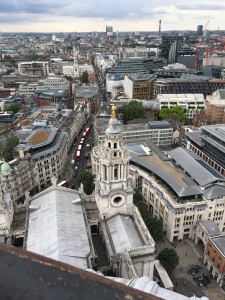

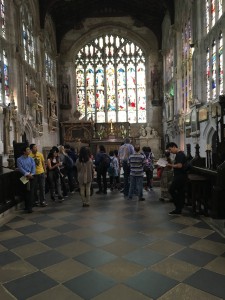
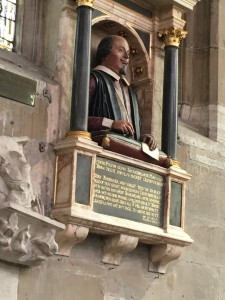
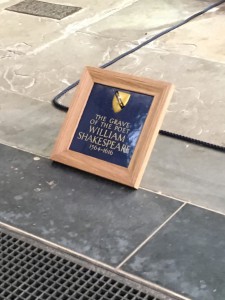
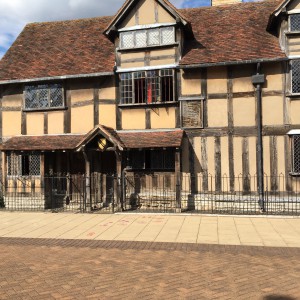
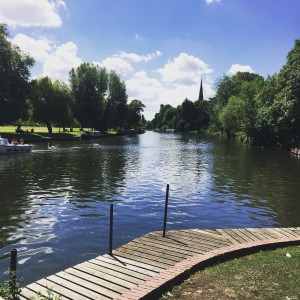 The Sweet Swans of the river Avon. (Though not so sweet; I saw them attack children for food.)
The Sweet Swans of the river Avon. (Though not so sweet; I saw them attack children for food.)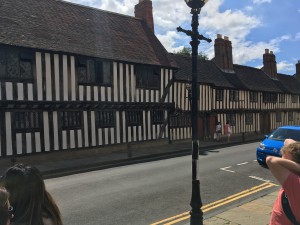
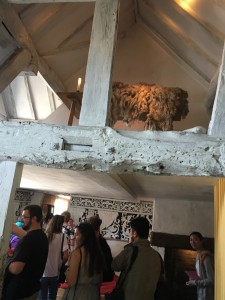 A visit inside the Shakespeare house. Sean and Taylor admire the furniture.
A visit inside the Shakespeare house. Sean and Taylor admire the furniture.